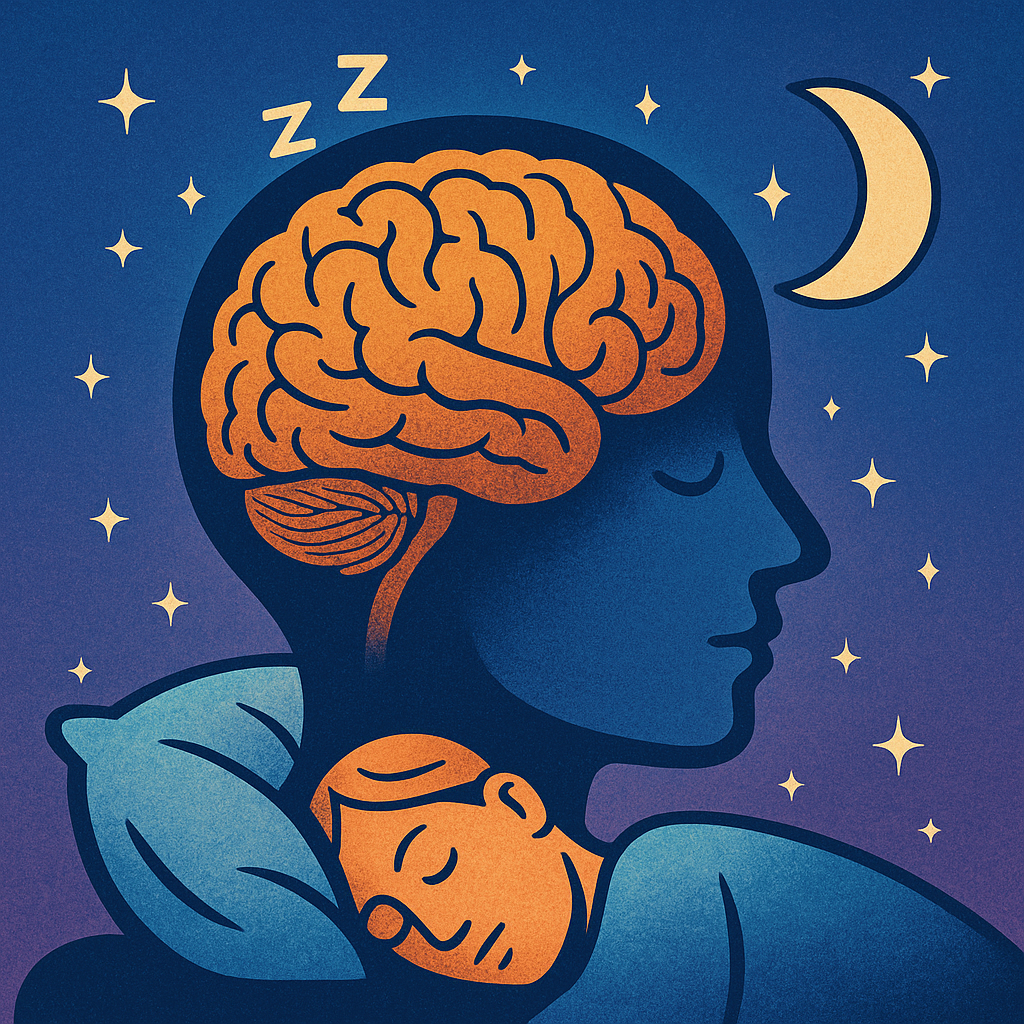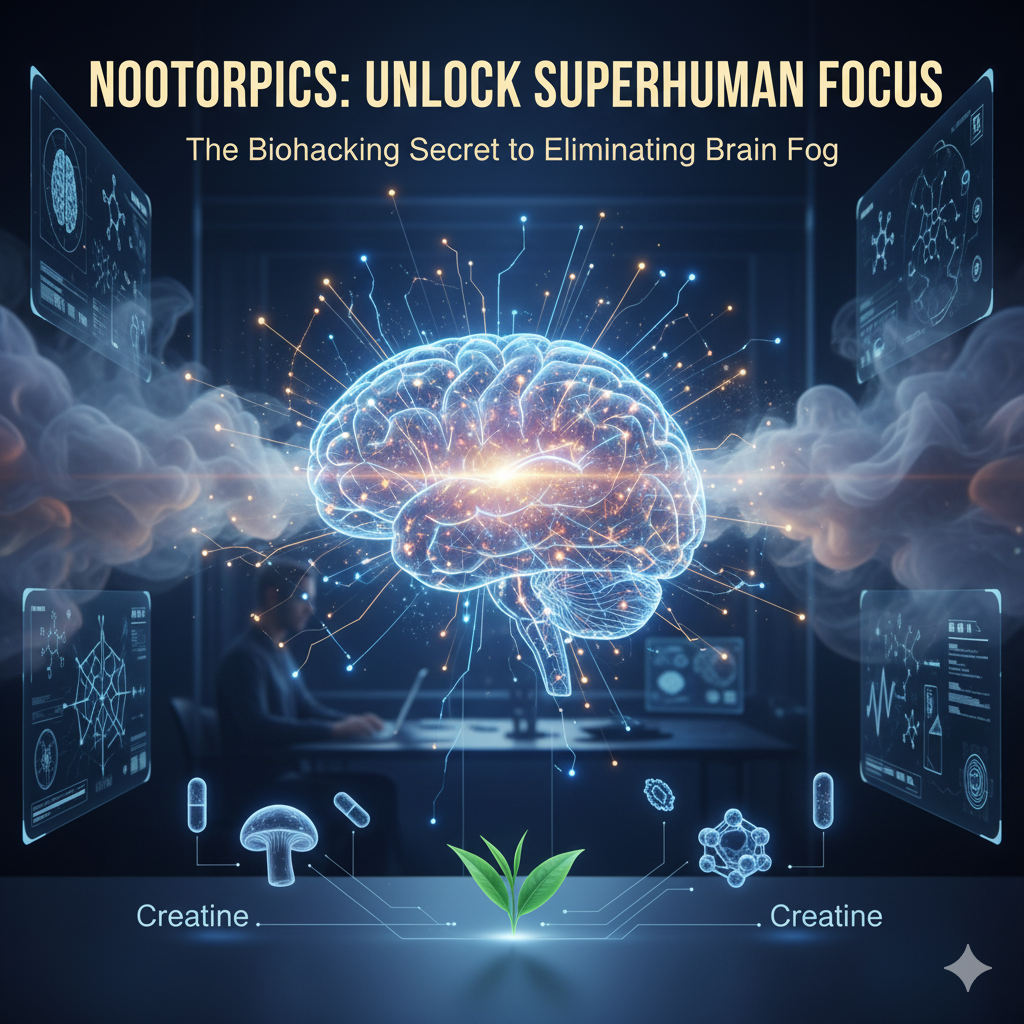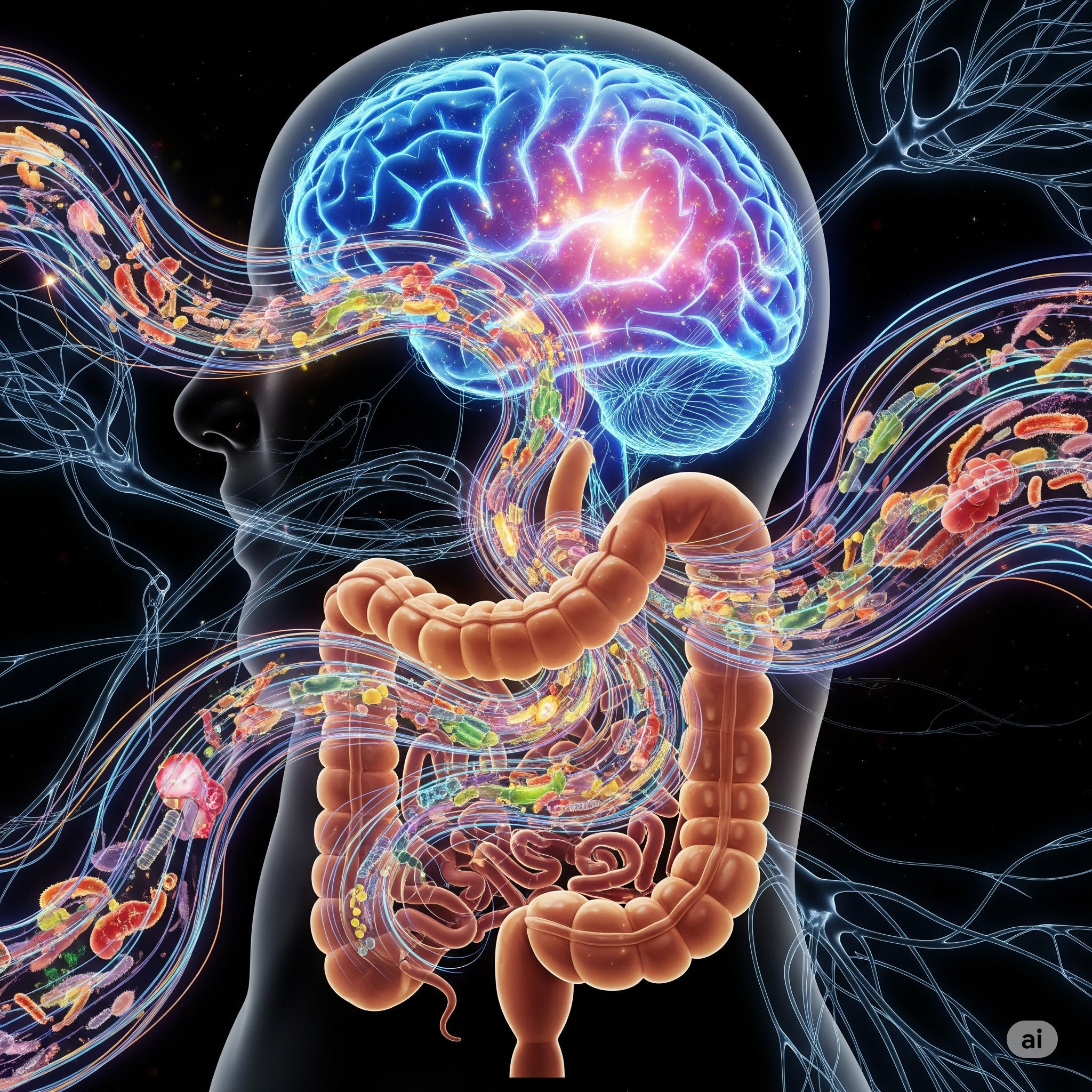The Neuroscience of Rest
Introduction:
We often think of sleep as simply a break from being awake—a time when our bodies shut down to recharge. But in reality, sleep is one of the most active, essential, and complex biological processes, especially for the brain.
While you sleep, your brain is hard at work: forming memories, regulating emotions, clearing out waste, and preparing you for the next day. In fact, sleep affects nearly every system in the brain, from your ability to focus and solve problems, to your emotional resilience and long-term mental health.
In this article, we’ll explore the fascinating science behind how sleep supports brain function, what happens when you don’t get enough of it, and how to improve the quality of your rest—based on real neuroscience, not pop culture myths.
1. What Happens in Your Brain When You Sleep?
Sleep is not a passive state. Your brain cycles through different stages, each with a unique purpose:
- Stage 1 (Light Sleep): You drift in and out of sleep. Brain waves begin to slow.
- Stage 2: Body temperature drops, heart rate slows, and the brain starts blocking out external noise.
- Stage 3 (Deep Sleep): Slow-wave sleep begins. This is crucial for physical restoration and immune function.
- Stage 4 (REM Sleep): The brain becomes highly active. This is where dreams, memory consolidation, and emotion processing occur.
These stages cycle throughout the night in roughly 90-minute intervals. For optimal brain function, you need a balance of both deep sleep and REM sleep.
2. Memory, Learning, and Synaptic Pruning
Have you ever studied something all day, gone to sleep, and realized you understood it better the next morning? That’s not a coincidence—it’s neuroscience in action.
During sleep, especially in REM and deep slow-wave sleep, your brain strengthens new neural connections and transfers short-term memories into long-term storage. This process is called memory consolidation.
📚 Three types of memory sleep supports:
- Declarative memory (facts and information)
- Procedural memory (skills and habits)
- Emotional memory (feelings tied to experiences)
In addition, the brain performs something called synaptic pruning—removing unused connections to make space for new learning. It’s like cleaning up your desktop to keep your system running smoothly.
Sleep is not only important for remembering—it’s critical for learning. Studies show that sleep-deprived individuals retain less information, make more errors, and solve problems more slowly than those who are well-rested.
3. Sleep and Emotional Regulation
You might have noticed how everything feels worse after a sleepless night. That’s because sleep is directly linked to your brain’s emotional control center.
When you don’t sleep enough, the amygdala (your brain’s fear and threat detector) becomes hyperactive. Meanwhile, the prefrontal cortex (responsible for judgment and impulse control) loses its ability to regulate emotional reactions.
💥 The result?
- More irritability
- Heightened stress response
- Increased risk of anxiety and depression
A 2007 study in Sleep journal showed that even one night of poor sleep increases emotional reactivity and decreases emotional empathy the next day.
Simply put: a tired brain is a reactive brain.
4. The Brain’s Cleaning Crew: The Glymphatic System
While you’re awake, your brain produces metabolic waste—proteins, toxins, and cellular debris that, if left unaddressed, can impair function. But your brain doesn’t have a traditional lymphatic system like the rest of your body.
Instead, it relies on something discovered fairly recently: the glymphatic system.
This system activates primarily during deep sleep, using cerebrospinal fluid to flush waste through channels formed by glial cells. One of the most harmful substances it removes is beta-amyloid, a protein associated with Alzheimer’s disease.
🧽 Think of deep sleep as a “power wash” for your brain.
A 2013 study published in Science showed that sleep increases the efficiency of this waste clearance process by 60%. When sleep is restricted, these toxins accumulate—potentially accelerating brain aging and neurodegeneration.
5. The Cost of Sleep Deprivation: Cognitive and Neurological Decline
Chronic sleep deprivation doesn’t just make you feel groggy—it can slowly damage your brain over time.
Research has linked insufficient sleep to:
- Slower cognitive processing
- Poor attention and concentration
- Memory lapses
- Increased risk of dementia and Alzheimer’s disease
- Mood disorders and even hallucinations
In a long-term study from the University of Oxford, participants who consistently got less than 6 hours of sleep per night performed worse on memory and language tests than those who slept 7–8 hours.
Furthermore, MRI studies have shown that sleep-deprived individuals experience brain shrinkage in key areas like the hippocampus (memory center) and prefrontal cortex.
Sleep isn’t a luxury—it’s neuroprotection.
6. Sleep and Neurological Disorders
Because sleep is so essential to brain health, it’s no surprise that poor sleep is a common symptom—and sometimes even a cause—of neurological disorders.
💡 Conditions strongly linked to sleep disruption:
- Alzheimer’s Disease: Sleep loss may accelerate beta-amyloid buildup in the brain. Fragmented sleep is one of the earliest signs of cognitive decline.
- Parkinson’s Disease: REM sleep behavior disorder (acting out dreams) often precedes motor symptoms.
- Stroke: Poor sleep increases blood pressure and inflammation, which raises the risk of ischemic strokes.
- Epilepsy: Sleep deprivation is a known trigger for seizures.
- Multiple Sclerosis: Fatigue is common, and poor sleep worsens neurological symptoms.
Improving sleep quality has shown benefits not only in managing symptoms, but also in slowing progression in some disorders.
7. How to Sleep Smarter: Evidence-Based Tips
Great sleep doesn’t just happen—it’s built through routine and environment. Here’s what neuroscience and sleep medicine suggest:
✅ Sleep Hygiene Checklist:
- Stick to a consistent sleep schedule, even on weekends
- Create a cool, dark, and quiet sleeping environment
- Limit screens and blue light at least 1 hour before bed
- Avoid caffeine after 2 PM and alcohol before bed
- Build a wind-down routine: reading, light stretching, or meditation
- Don’t lie in bed awake—if you can’t sleep, get up and do something calm until drowsy
- Get morning sunlight exposure to reset your circadian rhythm
If sleep problems persist, consult a doctor or sleep specialist. Insomnia, sleep apnea, and restless leg syndrome are treatable.
🧠 Final Thoughts: Sleep Is the Brain’s Superpower
In a world that glorifies hustle and late nights, sleep is often neglected—even shamed. But neuroscience tells a different story: sleep is not optional. It’s essential.
Without enough sleep:
- You can’t think clearly
- You can’t regulate emotions
- You can’t remember, recover, or grow
With quality sleep, the brain doesn’t just rest—it heals, strengthens, and evolves.
So if you’re looking to boost your mental health, memory, or productivity, don’t reach for another supplement or self-help book—go to bed.
Because better sleep = better brain.



One thought on “💤 How Sleep Affects Your Brain: 7 Step”